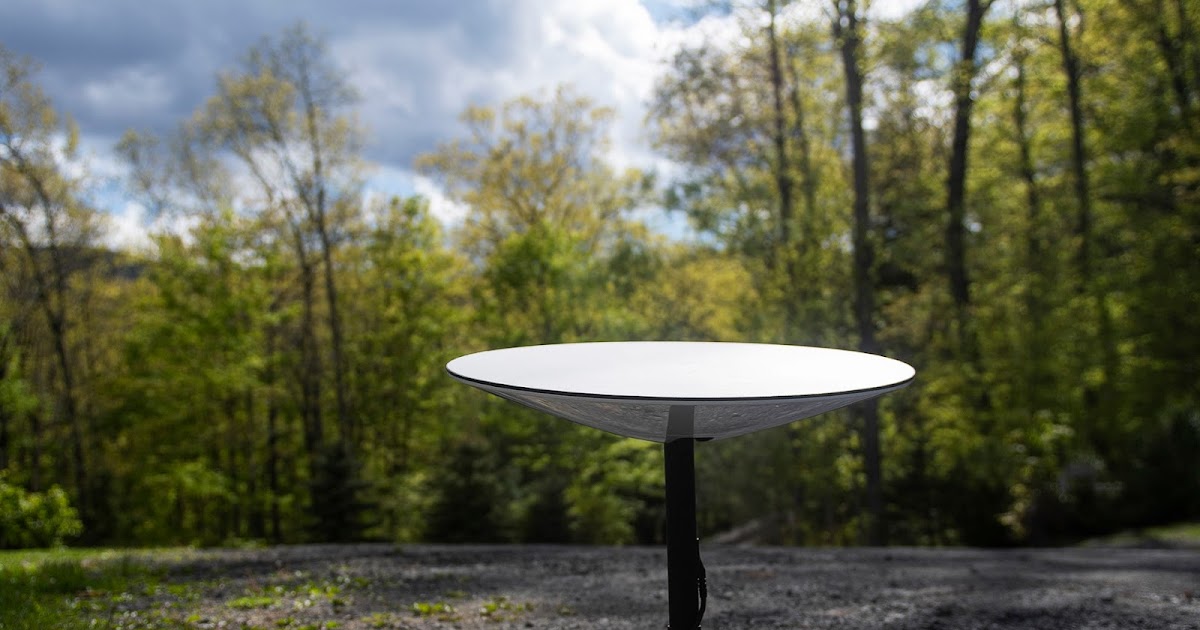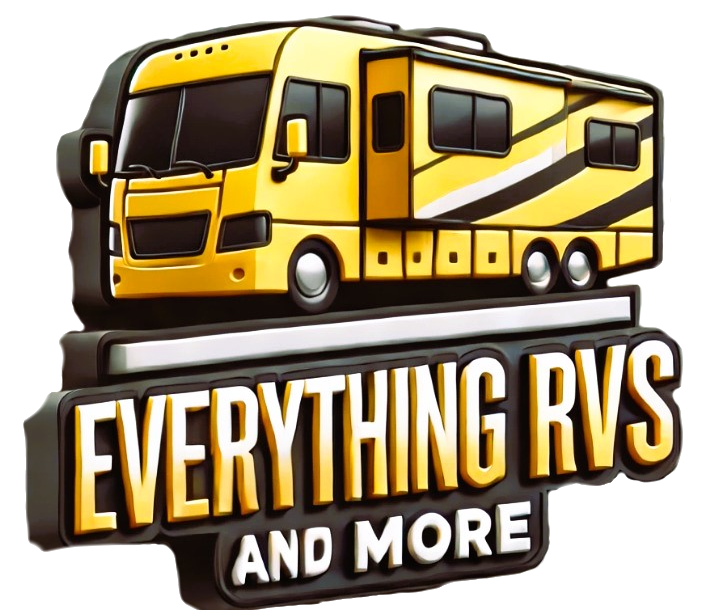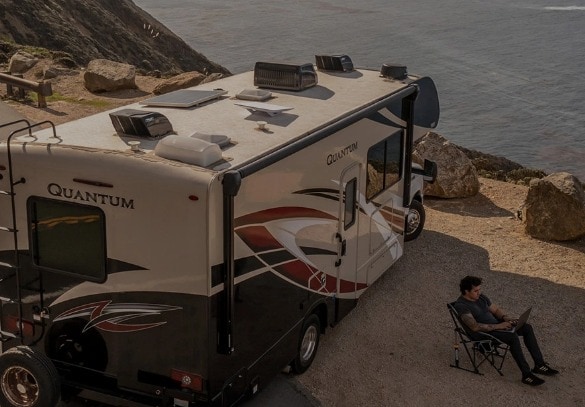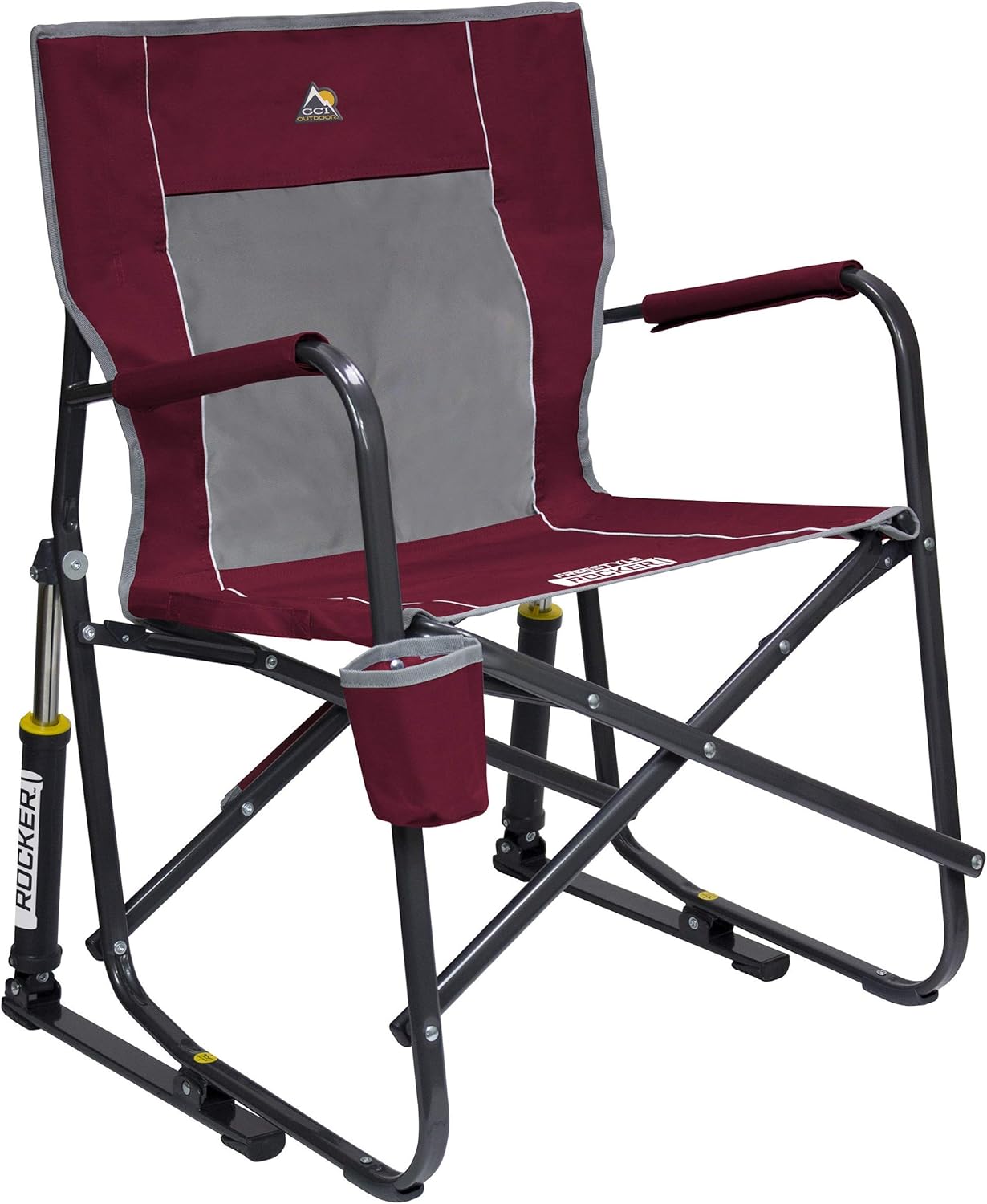Affiliate Disclosure: I earn commissions if you shop through the links below at no additional cost to you.
Last Updated on February 23, 2025 by Jeremy
Why Staying Connected in Your RV Matters
The open road calls, but in today’s digital world, reliable internet access is more important than ever. Whether you’re working remotely, streaming your favorite shows, keeping in touch with family, or navigating with GPS, having a strong and stable internet connection can make or break your RVing experience.
With various options available, from satellite solutions to cellular hotspots and signal boosters, finding the best RV WiFi system depends on your travel style, destinations, and data needs. This guide will break down five solid WiFi options, their pros and cons, and which one might work best for your on-the-go lifestyle.
1. Starlink: High-Speed Satellite Internet for RVers

Overview
Starlink, developed by SpaceX, is revolutionizing RV WiFi with global satellite coverage and high-speed connectivity, even in remote areas. This option is perfect for RVers who frequently boondock or camp off-grid where cellular networks struggle.
Pros:
✔ Fast Speeds – Supports streaming, gaming, video calls, and large downloads.
✔ Works in Remote Areas – No reliance on cell towers.
✔ User-Friendly Setup – Simple installation process.
Cons:
❌ High Initial Cost – Upfront hardware costs around $599.
❌ Power Consumption – Not ideal for solar-only setups.
❌ Coverage Limitations – Service can be restricted based on location and network congestion.
Pricing & Availability
💰 Hardware Cost: $599
💰 Monthly Plan: $150 (Standard Plan)
Best For:
- Full-time RVers who need reliable, high-speed internet anywhere.
- Remote workers who require consistent speeds for video calls and large file uploads.
2. TravlFi: Cellular & Satellite Hybrid for RVers

Overview
TravlFi is designed specifically for RVers, campers, and digital nomads. It combines cellular and satellite connections, automatically selecting the strongest available network based on location.
Pros:
✔ Hybrid Connectivity – Uses both satellite and cellular networks.
✔ Flexible Plans – Adjust your data plan as needed.
✔ No Contracts – Pay for what you use.
Cons:
❌ Limited Global Coverage – Works best in the U.S.
❌ More Expensive Than Some Hotspots – Monthly plans start at $79.99.
Pricing & Availability
💰 Plan Options: Starting at $79.99/month
💰 Equipment: One-time fee varies by device
Best For:
- Digital nomads who work while traveling.
- RVers who visit both urban and rural locations and need seamless connectivity.
3. WiFiRanger: Boosting Existing WiFi Signals

Overview
WiFiRanger, a WiFi signal booster, extends and enhances existing WiFi signals from campgrounds, truck stops, or public hotspots. It’s ideal for RV parks where WiFi signals are weak or congested.
Pros:
✔ Strengthens Weak WiFi Signals – Perfect for campgrounds.
✔ Automatic Failover – Switches between WiFi and cellular when needed.
✔ Works with All Devices – Connects to laptops, phones, and smart TVs.
Cons:
❌ Requires Existing WiFi – Doesn’t work if there’s no signal to boost.
❌ Installation May Require Some Setup – Mounting on the RV may take time.
Pricing & Availability
💰 Starting Price: Around $199 (varies by model)
Best For:
- Campground RVers who want to improve weak park WiFi.
- Travelers who frequently stay near free public WiFi hotspots.
4. Mobile Hotspots: Portable & Reliable Internet Access

Overview
Mobile hotspots use cellular networks (AT&T, Verizon, T-Mobile) to provide on-the-go internet. They are a budget-friendly option and widely available, making them one of the most popular choices for RVers.
Pros:
✔ Easy to Use – Plug and play, no installation needed.
✔ Affordable Data Plans – Various carriers and plan options.
✔ Portable – Works inside and outside your RV.
Cons:
❌ Dependent on Cellular Coverage – Won’t work in remote, no-service areas.
❌ Data Caps Apply – Unlimited plans may slow speeds after a certain limit.
Pricing & Availability
💰 Device Cost: $100 – $300 (varies by carrier)
💰 Data Plans: $30 – $100+ per month
Best For:
- Casual travelers who need internet mostly in urban and suburban areas.
- RVers who already have a strong cellular network provider.
5. Omnidirectional Antennas: Extend Your WiFi & Cellular Range

Overview
An omnidirectional antenna is a signal booster that captures WiFi or cellular signals from all directions (360 degrees). They extend range when using mobile hotspots, routers, or campground WiFi.
Pros:
✔ Affordable & No Monthly Fees – One-time purchase.
✔ Boosts WiFi & Cellular Signals – Works with multiple devices.
✔ Easy to Install – Many models mount to RV roofs.
Cons:
❌ Needs an Existing Signal – Won’t work in dead zones.
❌ Performance Varies – Effectiveness depends on location and terrain.
Pricing & Availability
💰 Starting Price: $50 – $200
Best For:
- RV park campers who want stronger and more stable WiFi signals.
- RVers who already use mobile hotspots but want better range.






.jpg/:/cr=t:5.56%25,l:0%25,w:100%25,h:88.89%25/rs=w:1240,h:620,cg:true)






Leave a Reply